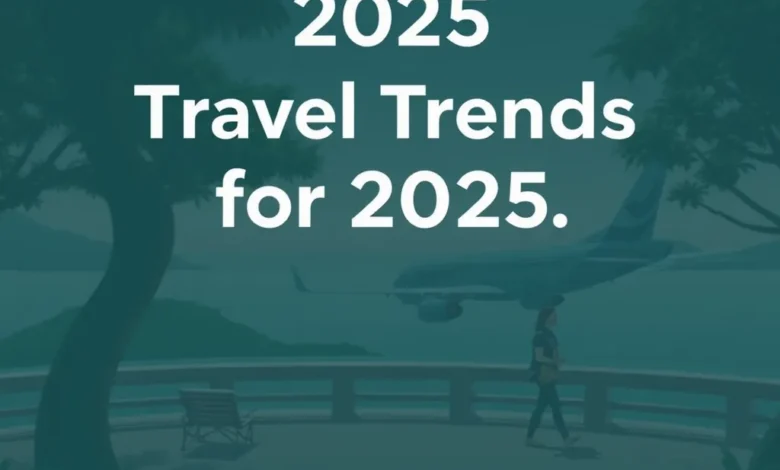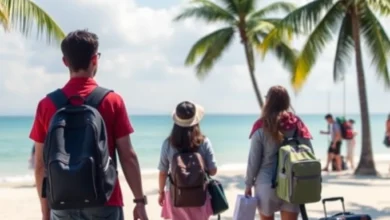Travel Trends for 2025: Budgeting, Personalization, and Sustainability

Travel in 2025 is being shaped by a trio of powerful forces: the need to budget wisely, the desire for highly personalized experiences, and a growing commitment to sustainability. These trends reflect changing traveler priorities in a world where economic pressures, technological innovation, and environmental awareness are all at play. Here’s how each of these trends is transforming the travel landscape and what it means for travelers and the industry.
Budgeting: Value Without Sacrifice
Economic uncertainty, inflation, and shifting work patterns are prompting travelers to rethink how they spend on travel. While many people still prioritize travel in their lives, there’s a clear move toward maximizing value and minimizing unnecessary costs.
A significant portion of travelers are actively seeking budget-friendly options. This doesn’t mean they’re willing to compromise on quality—instead, they’re looking for smart ways to stretch their budgets. Popular strategies include choosing affordable accommodations, opting for shorter or less frequent trips, and selecting destinations closer to home. Flexible pricing models, tiered service offerings, and transparent value propositions are more important than ever.
Interestingly, while nearly a third of travelers expect to cut back on travel expenses, a larger group plans to increase their travel budget compared to last year. This dual trend is driving demand for both affordable and premium experiences, with travelers expecting flexibility and value at every price point. For the industry, this means offering a range of options, from basic to luxury, and making it easy for travelers to customize their trips according to their financial comfort zone.
Corporate travel is also evolving. Businesses are being more strategic about travel, focusing on trips that deliver clear value—such as reconnecting teams or engaging clients. With remote work still prevalent, companies are balancing the need for in-person meetings with cost-saving measures like reduced per-diem allowances and more selective travel policies.
Personalization: The Tailored Journey
Travelers in 2025 expect more than just a generic experience—they want journeys tailored to their unique interests, lifestyles, and values. This trend is fueled by advances in artificial intelligence, data analytics, and digital platforms that allow travel providers to deliver hyper-personalized recommendations and seamless, integrated experiences.
The concept of the “connected trip” is gaining momentum. Travelers increasingly want to book flights, accommodations, activities, and local transportation in a single, streamlined process. AI-powered tools can suggest destinations, itineraries, and experiences based on a traveler’s history, preferences, and even real-time context. For example, music and sports fans are willing to pay significant premiums for trips built around concerts or live events, while wellness travelers seek out retreats tailored to their health and lifestyle goals.
Personalization extends to every stage of the journey—from planning and booking to in-destination services and post-trip engagement. Brands that invest in technology to anticipate and meet individual needs are seeing higher satisfaction, loyalty, and repeat business. For travelers, this means less time spent planning and more time enjoying unique, meaningful experiences.
Sustainability: Responsible Travel as the New Norm
Sustainability has shifted from a niche concern to a mainstream expectation. Today’s travelers want to minimize their environmental footprint and support destinations that prioritize conservation and community well-being. This is especially true among younger generations, who are leading the way in demanding eco-friendly options.
A growing number of travelers are willing to pay more for sustainable choices, such as greener flights and eco-certified accommodations. They’re seeking out hotels with visible sustainability credentials, choosing low-emission transportation, and participating in activities that benefit local communities. Responsible travel is no longer just a differentiator—it’s becoming a baseline requirement.
Travelers are also looking for transparency. They want to know how their choices impact the environment and local economies, and they expect companies to communicate their sustainability efforts clearly. Booking platforms are responding by highlighting eco-certifications and making it easier to find responsible options.
For the industry, this means investing in green infrastructure, reducing waste, sourcing locally, and collaborating with communities to offer authentic, low-impact experiences. Those who embrace sustainability not only attract conscious travelers but also future-proof their businesses in a world where environmental responsibility is increasingly non-negotiable.
The Intersection: Innovation and Opportunity
The convergence of budgeting, personalization, and sustainability is driving innovation across the travel sector. Technology is enabling companies to deliver flexible, tailored, and eco-friendly experiences at scale. Mobile apps, AI chatbots, and immersive digital tools are transforming how travelers plan, book, and enjoy their journeys.
As travelers seek value, meaning, and responsibility, the winners in 2025 will be those who adapt quickly—offering affordable choices, personalized service, and a genuine commitment to people and planet. The future of travel is about making every journey count: for the traveler, for the community, and for the world.




